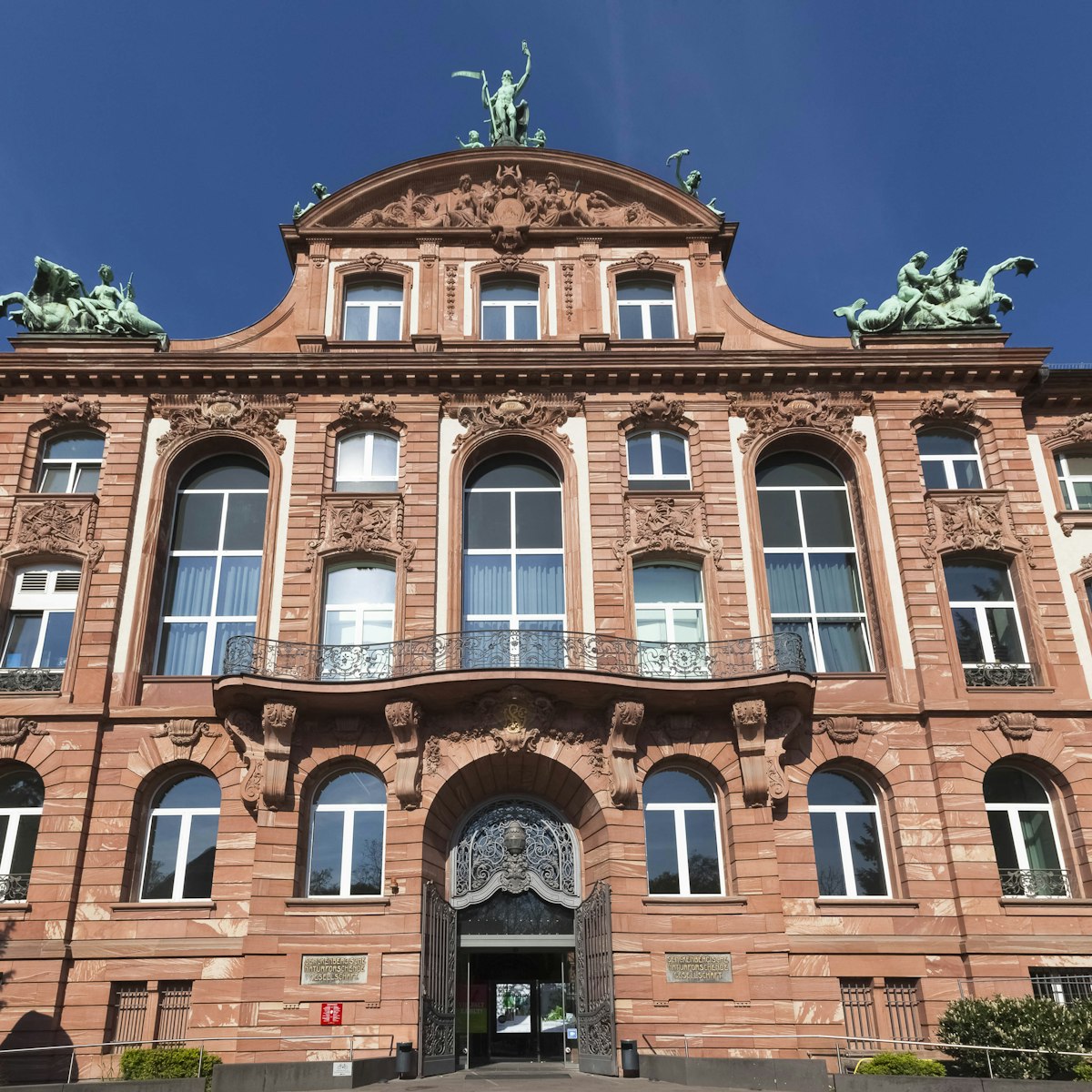Darmstadt’s focal point is the 18th-century Luisenplatz, a veritable hive of activity thanks to the adjacent shopping precinct, which stretches south from the Luisencenter shopping mall.
In the centre of Luisenplatz, a 39m-high column, erected in 1844, holds aloft a statue of Grand Duke Ludwig I of Hesse and the Rhine (1753–1830). The square itself is named after his wife, Grand Duchesse Louise (1761–1829).
Luisenplatz is 1.5km east of the Hauptbahnhof, linked by trams 2, 3 and 5.




